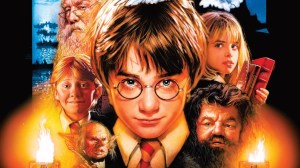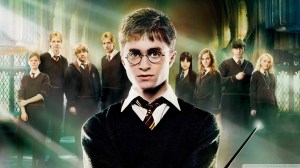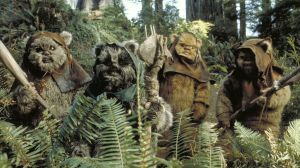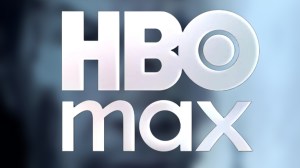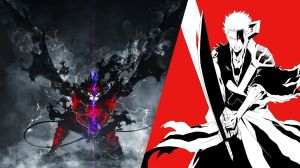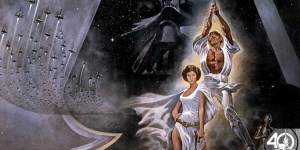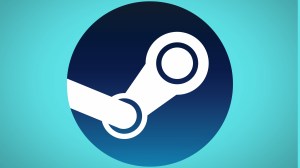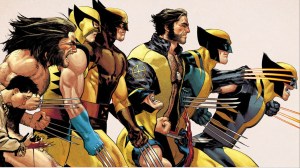The Harry Potter TV remake is taking shape, but some significant questions and challenges remain unanswered. HBO is embarking on a new 10-year journey for the Boy Who Lived, led by Dominic McLaughlin as the eponymous hero, with Alastair Stout’s Ron Weasley and Arabella Stanton’s Hermione Granger rounding out the new Golden Trio. They’re joined by a cast of familiar faces, including John Lithgow as Albus Dumbledore and Nick Frost as Rubeus Hagrid, among many others. The casting of those characters was a major hurdle, and one it’s largely managed to clear.
Videos by ComicBook.com
Still, there are many more ahead for the remake, which will only face increased scrutiny over its fidelity to the source material and how it differs to the Harry Potter movies as time goes on. With the show not expected to premiere on HBO until sometime in 2027, we’re a long way off getting answers to a few questions regarding the show’s approach and, ultimately, its quality. There are understandably reservations – this is a monolithic piece of pop culture, after all, not to mention one that comes with its own baggage and controversy – but one question seems particularly hard to answer: who is it really for?
Is The Harry Potter TV Remake For Movie Fans?
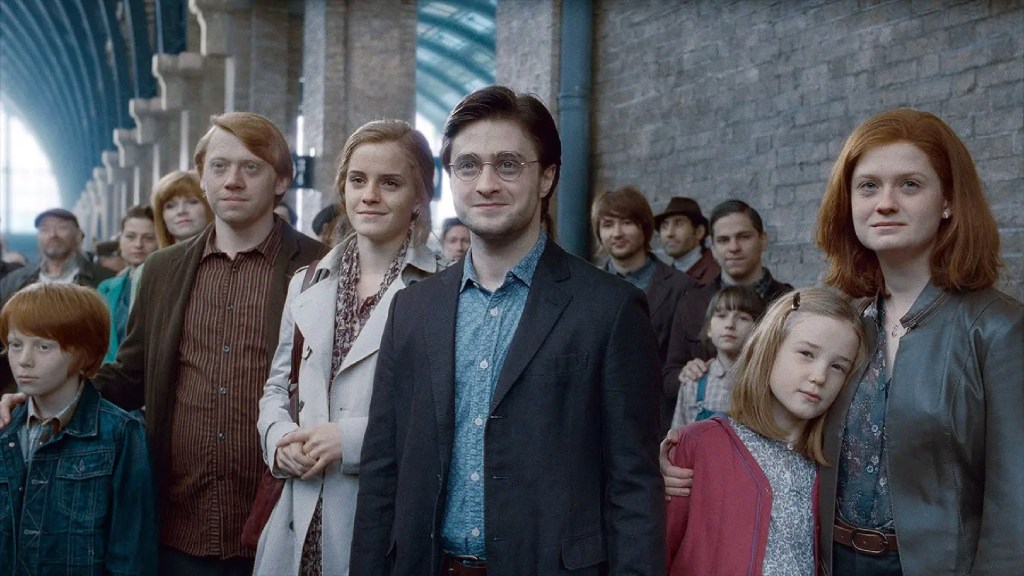
The most obvious answer to the title’s question is that Harry Potter’s remake is targeting movie nostalgia, in particular aiming to capitalize on the enduring love for the franchise among millennials and the older end of Gen Z. This would certainly fit with its branding, which is so far still relying on the same Wizarding World iconography we’ve been seeing since the 2000s. And in truth, Warner Bros. and HBO may not want or be able to stray too far from that. After all, they’re not just movies (which made billions of dollars), but an entire empire of merchandise, theme parks, and more, all tied to the movies more so than the books.
But that itself poses a challenge and makes the answer less certain. The love for those movies remains incredibly strong, so how can the TV series compete? When the theme parks or whatever else it might be that brings in millions of dollars per year are so firmly rooted in the eight Harry Potter films, and they’re still so recent that people could’ve seen the last movie as a kid and still not be old enough to drink in the U.S., how can the remake even begin to leave its own mark?
Rather than riding a wave of nostalgia, it simply risks unfair comparisons to something that is still very present not only in the fandom’s consciousness, but everything the franchise is throwing at them too. The few glimpses we’ve had of the show fit with this, too. There are a few age changes to the adults. But where they do alter other things, with, for example, the different look for the Dursleys (a smart choice), it’s already proved divisive.
Recent set photos showed Harry and Hagrid in London; sure enough, you could be mistaken for thinking they were set photos from the movie, such is the similarity in clothing and character design. And there’s perhaps a sense of limited scope to change things too much, but then again, it brings the question of what’s the point of doing it?
So, Is The Harry Potter Remake For Book Purists?
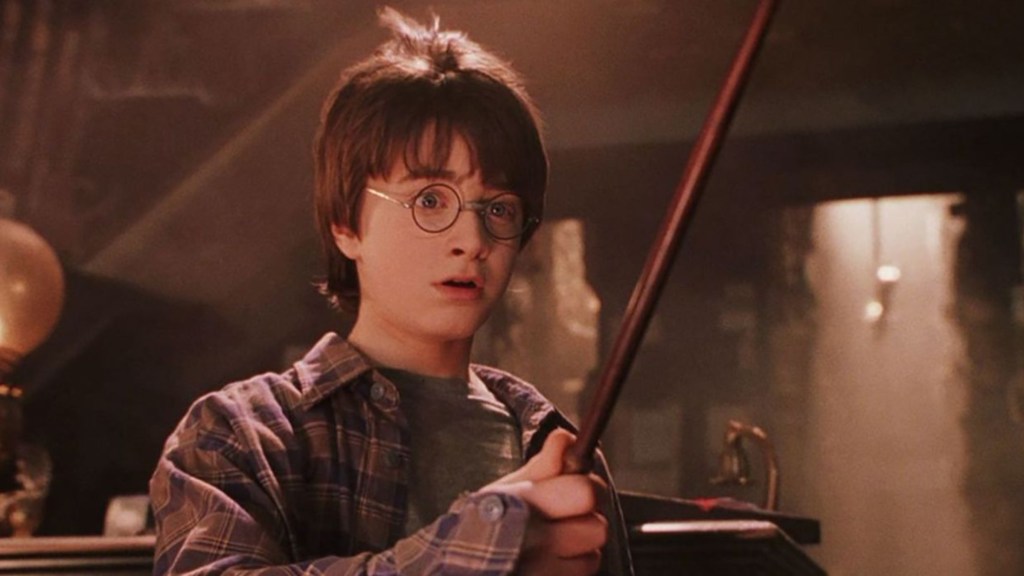
If it’s not going to please movie lovers, then is the Harry Potter remake instead going to be the adaptation that book purists have always dreamed of? This is, of course, the benefit of doing it as a TV series. There’s a lot more runtime to play with, which means all those things cut from the movies – from Peeves to S.P.E.W. to the Gaunt family and much more – can now be included.
What’s more, it can also get things right that the movies changed, as we’ve seen with things like younger actors playing many of the adult characters (e.g. Severus Snape is in his early 30s when the books begin; Paapa Essiedu is 35, whereas Alan Rickman was 55 when the first movie was released).
That’s all well and good, and more book scenes and source material accuracy should, for the most part, be welcomed, but it only goes so far. Because what happens when it inevitably starts to make changes? We’ve already seen some of this, albeit not all for justified reasons. The casting of Essiedu, a Black man, sparked a sadly predictable backlash from a minority. Of much lesser importance, the apparent inclusion of Lucius Malfoy (Johnny Flynn) and Cornelius Fudge (Bertie Carvel) certainly raises some eyebrows. The first look image of Harry prompted debate about the placement and shape of his scar.
There’ll be more of that to come. Any adaptation has to make choices. Some things will have to change for the screen; there’ll be scenes added and invented as well as things cut. But if you’re making a big play for being the more book accurate version of Harry Potter, that’s harder to get away with. Then you’re going to be negatively compared to the movies, and piss off the other set of fans too (ignoring, for a moment, that there’s a large overlap between the two).
Can The Harry Potter Remake Attract New Fans?

There’s something quite nice about the idea of the Harry Potter TV show being aimed at a new, younger generation. This is in part what we’ve seen happen with other franchises. An entire generation of kids was introduced to Star Wars by the prequels, and they’re the people who now drive a lot of the online conversation, which has seen something of a reappraisal of those movies. The same will likely hold true of the sequels. So if it worked for Star Wars, why not Harry Potter?
It’s possible this will pay off, but it’s a bit harder. It doesn’t appear to be drastically reinventing the wheel, and if it’s aimed at kids, would this really be their entry point to the franchise? Star Wars was in a different place, even if the gap between releases is roughly the same. The franchise had been dormant, especially in the late-80s and early-90s (where it had its own dark age), and so it made sense that the prequels would generate hype with audiences old and new alike.
Harry Potter, in contrast, has had an entire spinoff franchise, a successful stage play (and accompanying book), and multiple theme parks. It isn’t just about merch, it’s a tourist driver all of its own (come to several cities in the U.K. and you can’t get moved for jam-packed wizarding stores, official or otherwise). It’s never had a chance to go anywhere, meaning it’s harder to believe a whole new generation would be introduced with the series rather than the movies or books. Plus, Star Wars was about expansion, whereas this is just redoing.
Ultimately, all of this may not matter too much. Harry Potter Season 1 will undoubtedly be a big success for HBO and, if all goes to plan, it will be for several more seasons after that. It’s probably the rare series that is truly too big to fail. The franchise will continue to be a juggernaut regardless. But will it be a great show and reach its full potential? That’s another matter.
There’s certainly a lot of talent involved behind and in front of the camera, which bodes well. But the difficulties in its approach and audience, and finding the right balance between all of these things, could come back to hurt it. That relying too much on the past, rather than embracing a chance to do new things, could hold it back. It’s a fine line and, so far, there are reasonable doubts about the Harry Potter show walking it, but hopefully it can cast a spell over everyone who tunes in, and all will be well.

